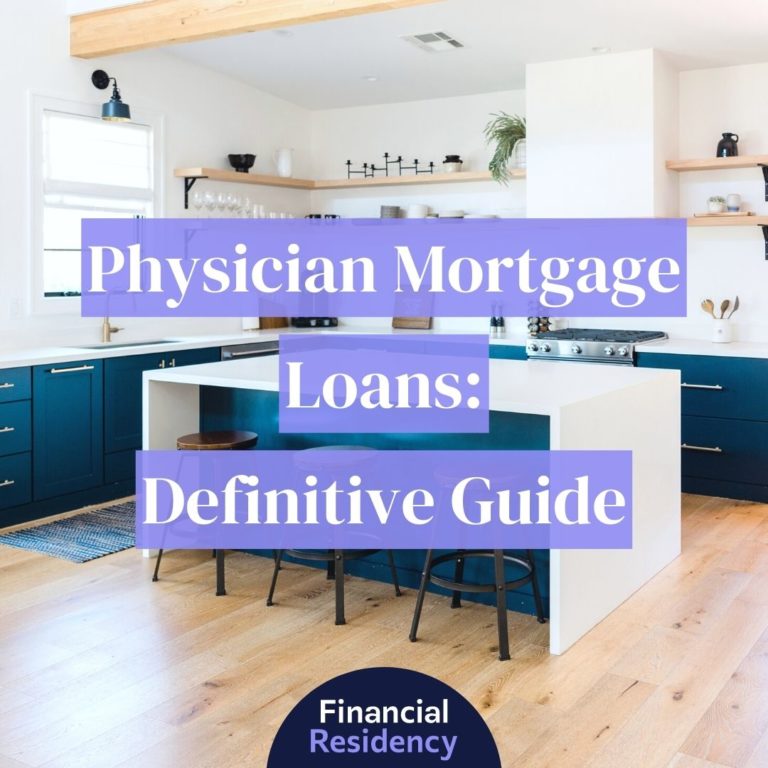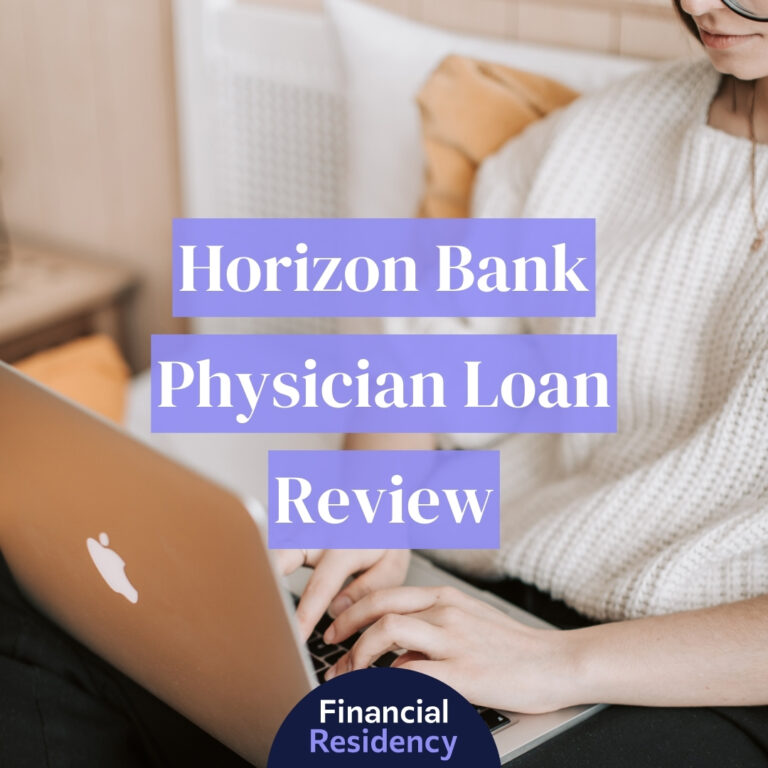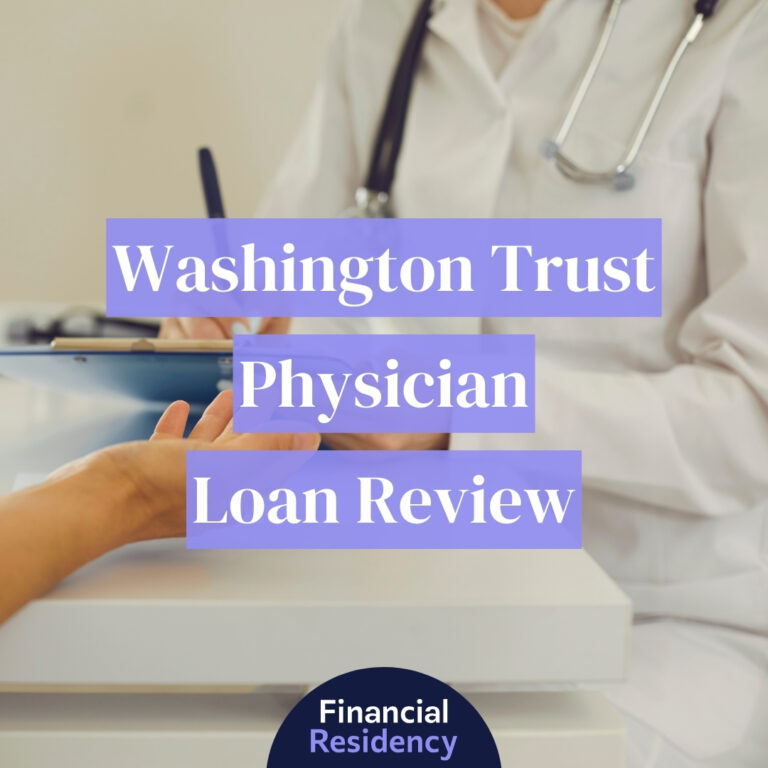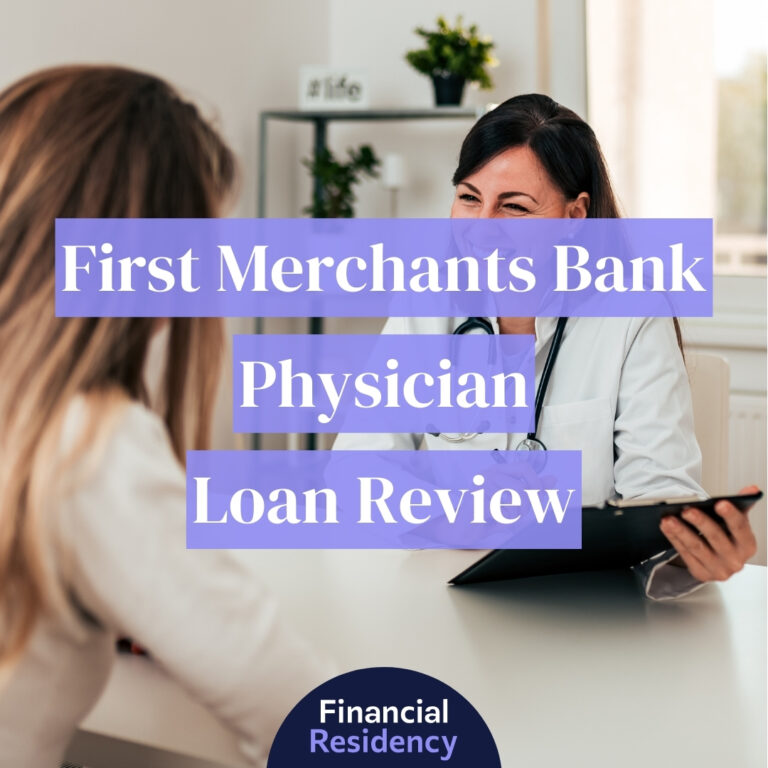The name Truist might not be on your radar yet, but it should be. The bank was minted in December 2019 with the merger of BB&T and SunTrust to create the Truist Financial Corporation.
The bank identifies as a purpose-driven financial services company, committed to investing in and building thriving, local communities. Truist offers a broad range of services and products, including business and personal banking accounts, second-chance checking, credit cards, and physician loan products.
Truist physician loans are available for medical doctors, residents, and fellows with eligible designations. Practicing physicians must have no more than 10 to 15 years of experience to be eligible.
About Truist Bank
- BBB Score: A+
- CEO: William H. “Bill” Rogers Jr. (2012- )
- Headquarters: Charlotte, North Carolina
- Phone number: 1 (844) 487-8478
- Services offered: Checking, savings, certificates of deposit (CDs), money market accounts (MMAs), credit cards, mortgages, loans, insurance, investment services, small business and enterprise banking solutions
Truist Physician Mortgage Loan: Fast Facts
Truist’s loans are flexibly designed for physicians where deferred student loan debt may be excluded from your debt-to-income (DTI) ratio and options for certain Visa holders.
Highlights and Facts about Truist Bank Physician Loans
- Discounts: Available when paired with a Truist bank account
- Financing: 100% on loans up to $1 million, 95% on loans up to $1.5 million, 89.99% up to $2 million; up to 95% financing maximum for condominiums
- Physician loan products: Personal lines of credit up to $100K, fixed-rate and adjustable-rate mortgages
- Down payment: No down payment or low down payment requirements
- Maximum loan amount: $2 million
- Competitive rates: Often superior to conventional mortgage products
- Private mortgage insurance (PMI): Waived — not required for physician mortgages
Discover The Best Lenders Answer just a few questions about your career, where you're buying, and how much you want to borrow. Our service will then show you the exact programs you're eligible for from vetted physician loan specialists who will guide you through every step of the process – obligation-free!
Truist Physician Mortgage Loan: Qualifications
Truist has a specific mortgage program for physicians called the Mortgage Doctor Loan Program.
- Primary residence: For the purchase or refinance of primary home only.
- Qualifying degrees: Doctor of Medicine (MD), Doctor of Osteopathic Medicine (MO), Doctor of Podiatric Medicine (DPM), Doctor of Dental Surgery (DDS), Doctor of Dental Medicine (DMD)
- Years of medical practice: No more than 15 years of post-training medical practice to qualify for a mortgage; up to 10 years to qualify for 100% financing or up to 15 years to qualify for 89.99%.
- Credit score: No specific credit score requirements are listed, but a good credit score (670 to 739 range) is likely required. In some instances, there may be more leniency for lower credit scores with proof of income and/or a Truist checking account.
- Residence eligibility: Truist doctor loans are available in AL, AR, CA, CT, DE, DC, FL, GA, IN, KY, MD, MA, MS, NJ, NC, OH, PA, SC, TN, TX, VA, and WV.
How To Apply
Here’s what to expect when going through the Truist Doctor mortgage loan process. The steps are similar to the traditional home mortgage process.
Check Availability in Your State
Truist doctor mortgage loans, sold as standalone products, are available in 22 states.
But if you hold a Truist bank account, mortgage loans are open to residents in 47 states. Check the Finder tool on Truist to see if you’re eligible.
Get Prequalified
This step is fairly straightforward. Provide Truist with some basic personal finance details: household income, debt, and a credit score. There will be a hard credit pull.
Prepare Your Documents
The mortgage application comes with paperwork. Be prepared to drown, a little bit, in documents. You’ll need to provide proof of debts and assets.
Documents you’ll need include:
- Proof of income and employment history
- Rental history
- Credit history
- Tax returns
- Bank account statements
- Copy of government-issued I.D.
- Information about other funds, including spousal support, child support, or cash gifts
Beyond gathering documents, there are other ways to make the process go smoothly.
While no down payment may be required for a Truist doctor loan, having at least 5 to 10 percent saved to put toward a down payment is a good idea.
Verify your credit report to make sure it does not contain inaccurate information or lines of credit you don’t recognize. If your credit score isn’t at least 700, work on raising it.
Finally, you may want to ask your work’s HR department to provide you with a letter of employment, which may also be called an income verification letter.
Get Pre-Approved
The pre-approval process gives you a formal dollar amount for how much you’ll be approved for.
Pre-qualification gives you an idea of how much you might be approved for, pre-approval means you are approved for a certain dollar amount for 90 days.
To view some houses on the market, you may be required to have a pre-approval letter to visit the property.
Since your pre-approval letter does expire, you may want to hold off on this step until you are ready to make an offer on a home. Credit approval is subject to change.
Also, a pre-approval may be only conditionally granted if you meet a recommended step like paying off a credit card bill. Or they may suggest tips to complete so you can receive pre-approval in the future.
Confirm and Lock in Your Rate
A loan officer from Truist will follow up on your loan application and confirm your interest rate and total approved loan amount.
Typically, the rate will be locked in for up to 45 days. The ultimate interest rate for your mortgage will depend on your credit score, type of property, location, and income.
Alternatives
Truist Bank is very selective about the types of medical designations eligible to qualify for a physician loan.
Many other banks have mortgage products designed for physicians, medical practitioners, and other high-salary professionals.
1. BMO Bank
BMO Bank (formerly BMO Harris Bank) offers medical loans for early-career doctors and dentists.
Doctors with fewer than 10 years of career experience can qualify for up to $1 million with no down payment. Later-career professionals can get medical loan financing, but a down payment of at least 10% is typically required.
Borrowers with a DTI ratio of up to 45% may be approved, which is quite generous as most banks prefer a DTI of no greater than 36%.
Physician borrowers can receive mortgage financing for up to $2 million. Loan funds can be used to purchase or refinance a 1 to 2-unit primary residence.
BMO Bank physician loans are not available in New York State.
2. Huntington Bank
Huntington Bank has flexible physician mortgage options for medical doctors, dentists, podiatrists, and veterinarians.
Its credit score requirements are more lenient than other physician mortgage loan programs; a minimum score of 700 is required. But if your credit score is on the lower side, a larger down payment may be required.
Huntington Bank will also approve mortgages for physicians with a DTI as high as 50%, and medical student loan payments are excluded from Huntingdon’s DTI calculator.
Borrowers with excellent credit may qualify for:
- 0% down payment for loans up to $1 million
- 5% down payment for loans up to $1.5 million
- 10% down payment for loans up to $2 million
3. U.S. Bank
As one of J.D. Power’s Big 6 banks, U.S. Bank has unbeatable name recognition. The financier provides a full range of banking, investment, and mortgage services, including a specialty logan program for doctors who would likely not qualify for a traditional mortgage.
U.S. Bank physician mortgages have more lenient terms than other conventional loans, including no private mortgage insurance (PMI) and generous flexible debt-to-income (DTI) calculators.
Borrowers with a credit score of at least 710 can borrow up to $2.5 million.
Additional U.S. Bank Physician Loan Highlights:
- Minimum FICO credit score: 710
- Maximum amount: Finance up to $2.5 million
- Owner-occupied property: Funds must be used to purchase or refinance a primary residence
- Eligible degrees: medical doctor (MD), OD, or JD
- Income history: Minimum 2 years of income history of a future-dated employment agreement
Pros and Cons
As with any mortgage product, Truist’s physician mortgage loan program has pros and cons.
Pros
- High loan amounts: Borrow up to $2 million
- Favorable rates: Competitive with rates offered by the largest banks in the U.S.
- No private mortgage insurance (PMI) requirements: PMI is waived for physician loans, which could save you $6,000 or more every year.
- Cash-out refinance options: Refinance your mortgage to access equity in your home, up to $50,000 in cash
- Available for residents, interns, and fellows: Designed for early-career or near-early-career professionals with limited savings
- Full-service bank convenience: Full-spectrum banking partner for checking and savings, credit cards, business and enterprise banking solutions, investment options, auto loans, and personal lines of credit
Cons
- Primary home only: Only owner-occupied, primary housing is eligible whereas other physician mortgages may cover a second property
- Limited property types: Covers only single-family houses and condominiums
- Not available in all 50 states: Physician mortgages are available in 22 states, or up to 47 if paired with a Truist bank account
- More degree restrictions than other medical loan programs: Only select medical degrees qualify whereas other programs include more degrees and other high-salary professions
Frequently Asked Questions
Is Truist a Top Tier Bank?
Yes, Truist is the seventh-largest bank in the United States with $555 billion in total assets as of June 2023.
Member FDIC-insured, Truist serves 15 million clients throughout the United States with its customer base primarily located on the East Coast. Truist serves 21 community banking regions with over 2,000 branches and over 3,000 ATMs.
Is Truist a Good Mortgage Company?
Yes, Truist Bank has high overall satisfaction rankings with ConsumerAffairs and J.D. Power.
Truist offers very favorable mortgage rates for consumers, including zero down payment mortgages for physicians and mortgage options for consumers with subprime credit.
Is it Hard to Get a Loan with Truist Bank?
Truist Bank doesn’t have public guidelines of its full borrower guidelines, but the higher the credit score the better in terms of favorable rates and underwriting.
In general, Truist tries to work with consumers who have less-than-perfect credit by offering a wide range of mortgage options and second-chance bank accounts for consumers who might not otherwise qualify for a checking account.
What Credit Score Do You Need for a Truist Mortgage?
A minimum credit score of 620 is generally required. In some instances, they may approve borrowers with a score below 620 or with no credit.
The Federal Housing Administration (FHA), however, does require a minimum credit score of 580.
Does Truist Approve Bad Credit?
Yes, consumers with poor credit scores may be able to qualify for a loan. There’s no pre-set minimum limit.
However, not all loans to consumers with subpar credit will be approved. The lender looks at the income, debt-to-income ratio, and credit profile of each borrower when making a determination.
If you do have poor credit, having a Truist bank account with direct deposit may increase your odds of being approved.




